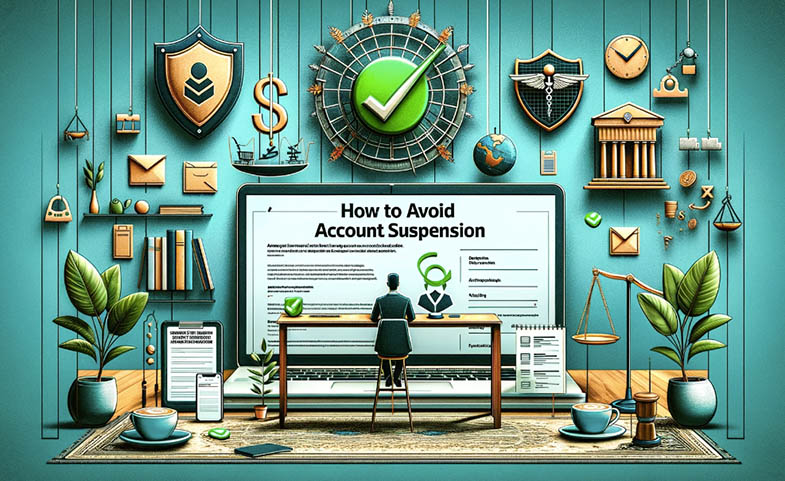Amazon's marketplace offers unparalleled opportunities for sellers to reach a vast audience and grow their businesses. However, the platform's complex and ever-evolving policies can be a minefield for the unprepared, where missteps may lead to account suspension, significantly impacting your business operations and revenue. This blog post aims to guide sellers through Amazon's policies, highlighting key areas to watch and offering tips to avoid account suspension.
Understanding Amazon's Performance Metrics
Amazon measures seller performance against specific metrics to maintain a high standard of service. Key metrics include Order Defect Rate (ODR), Pre-fulfillment Cancel Rate, and Late Shipment Rate. Consistently monitoring these metrics and maintaining them within Amazon's targets is crucial to avoid flags on your account.
Order Defect Rate (ODR)
ODR should remain below 1%. It includes negative feedback, A-to-Z Guarantee claim rate, and service chargeback rate. Proactively address customer issues and ensure product listings are accurate to avoid disputes.
Pre-fulfillment Cancel Rate
Keep this rate as low as possible by managing inventory effectively. Overlisting or inaccuracies in stock levels can lead to cancellations, affecting this metric.
Late Shipment Rate
Ensure your orders are shipped on time. Late shipments can not only impact your metrics but also customer satisfaction. Utilizing Fulfillment by Amazon (FBA) can help manage this if logistics are a challenge.
Adhering to Amazon's Product Listing Policies
Product listings must comply with Amazon's policies, which cover product authenticity, safety, and listing accuracy. Avoid listing prohibited items, ensure products are not counterfeit, and descriptions accurately match the product. Regular audits of your listings can help identify and rectify potential issues before they escalate.
Intellectual Property and Copyright
Amazon takes intellectual property (IP) rights seriously. Ensure you have the right to sell your products and that your listings do not infringe on others' IP rights. Receiving complaints can lead to suspension, so it's vital to resolve any IP issues promptly.
Navigating Customer Communication
Amazon's policies restrict how sellers can communicate with customers. Ensure all communication is through Amazon's messaging system and adhere to their guidelines. Do not attempt to redirect customers to external websites or request reviews in exchange for incentives.
Handling Suspensions and Appeals
If your account is suspended, carefully review Amazon's notice to understand the reasons. Your appeal should be concise, include a plan of action that addresses the issues raised, and detail steps you'll take to prevent future occurrences. Patience is key, as the review process can take time.
Conclusion:
Navigating Amazon's policies requires diligence, transparency, and a proactive approach to compliance. By understanding and adhering to Amazon's performance metrics, product listing policies, and communication guidelines, sellers can significantly reduce the risk of account suspension. Regularly reviewing Amazon's Seller Central updates and utilizing available resources can also provide insights into compliance and best practices. Ultimately, staying informed and compliant not only helps avoid suspension but also contributes to a trustworthy and successful selling experience on Amazon.
By implementing these strategies, sellers can focus on growing their business, safe in the knowledge that they are aligned with Amazon's operational standards, protecting their account from suspension and ensuring a smooth selling journey on one of the world's largest online marketplaces.


